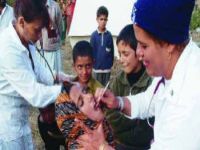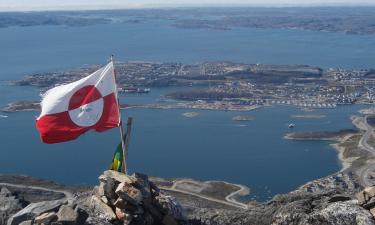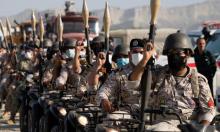Cuba Offers Vaccine Against Lung Cancer
Cuban scientists have recently revealed a lung cancer vaccine which they say is the first in the world of its kind and extends the lives of victims by up to five months or even longer. Research on the vaccine, called Cimavax EGF, began in 1992, with the first clinical tests done in 1995. Cimavas EGF is the first registered vaccine in the world designed to battlelung cancer.

Cimavas EGF, based on two proteins, triggers an immune response from the victim's body and has absolutely no side effects, as most anti-cancer therapy does. The vaccine only attacks cancer cells. The vaccine is meant to serve as a compliment to rather than a replacement for conventional methods such as chemotherapy and radiation. The vaccine also improves patients’ breathing and decreases their pain.
The vaccine currently is available in Cuba to anyone who needs it, and will be widely commercialized in Latin America after first being introduced in Peru. Advanced tests are currently underway.
Latin American School of Medical Sciences
In 1999, the Latin American School of Medical Sciences was opened. Eighteen Latin American governments selected and sent 1,929 of their most promising students, evenly divided between men and women, to be trained to become doctors.
Successful applicants chosen to attend the school receive a regular medical doctor degree after six years of training. The education and housing are provided free of charge. Students live at the school, which has a theater, dormitories, 28 teaching laboratories and a post office. They get uniforms, food and a small stipend for expenses on weekends.
After remaining there for two-and-a-half years, students are then integrated into the Cuban medical system for the rest of their medical education. The only condition imposed on students is that after they finish their study after six years, they serve 3 to 5 years in designated areas in Cuba.
Additionally, thousands of developing country medical personnel have received free education and training either in Cuba or by Cuban specialists engaged in on-the-job training courses and/or medical schools in their own countries. Today, over 10,000 developing country scholarship students are studying in Cuban medical schools.
Cuba is also reaching out to US students. It is ironic that Cuba is training doctors for pompous, arrogant America, all while Cuba is blockaded by US ships and sanctions - spending its meager treasure to improve the health of US citizens.
Furthermore, Cuba has not missed a single opportunity to offer and supply disaster relief assistance irrespective of whether or not Cuba had good relations with that government. In addition to training doctors, Cuba sends medical teams all over the world wherever there is a need. Cuba has also developed medications and drugs to treat some of the developing world's worst health care problems. In the remotest villages of Latin America and Africa, Cuban doctors work entirely for free.
Cuba “threatens” to provide massive amounts of medical aid to improve the health of poor people worldwide. Cuban doctors provide a serious threat to the status quo by their example of serving the poor in areas in which no local doctor would ever work, by making house calls a routine part of their medical practice and by being available free of charge 24/7, thus changing the nature of doctor-patient relations.
This new and promising vaccine is just one more example of the great humanitarian work being done by Cuba. In light of this, societal values and the structure and function of health systems and the medical profession need to be seriously examined for their failures to achieve even a minimum of what Cuban health care is able and willing to provide.
Cuba provides free and easily accessible medical care to its citizens. There also is a most extraordinary program for the elderly who get regular home visits and care from medical professionals. Cuba provides medical care to anyone who needs it. There is no end to the testimonies of individuals saved and restored to health thanks to Cuban assistance.
The most basic human right and need to healing, which touches the divine, is much more meaningful than how many mobile phones or DVD players one can obtain. Cuba serves as a shining humanitarian example of how a country’s resources, however limited, can be directed toward wonderful and impressive humanitarian deeds. It is also noteworthy that there is no shortage of persons in Cuba willing to go anywhere to perform these deeds in conditions that are often dreadful. What a wonderful model of the ideals of the Cuban Revolution. Bravo, Cuba!
Lisa KARPOVA
PRAVDA.Ru
USA/CANADA
Subscribe to Pravda.Ru Telegram channel, Facebook, RSS!




